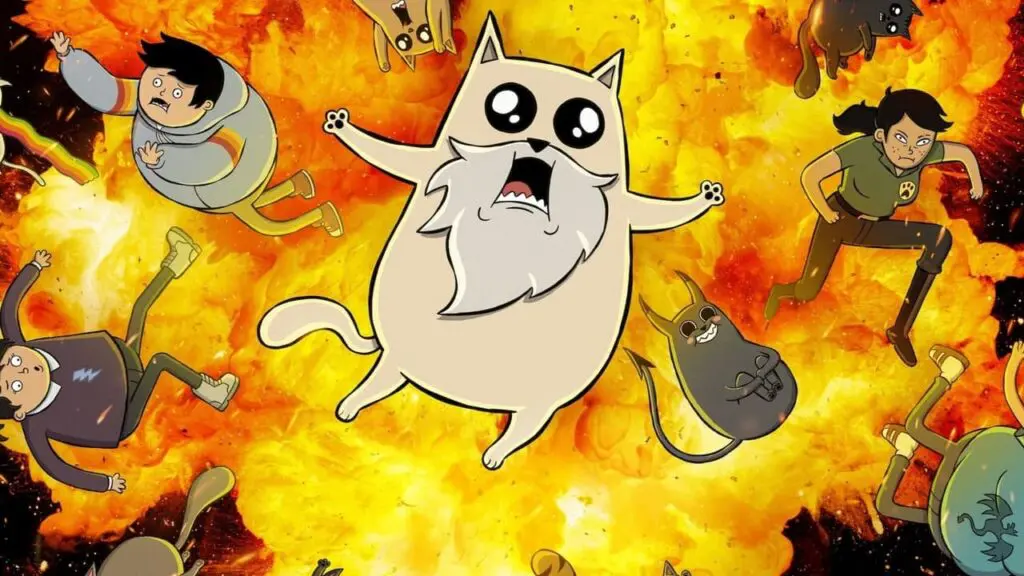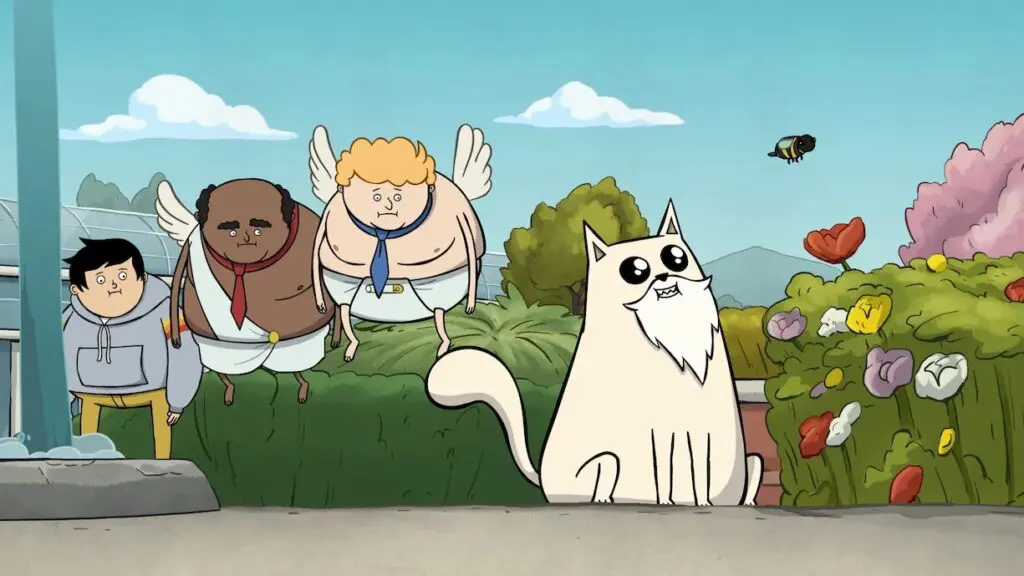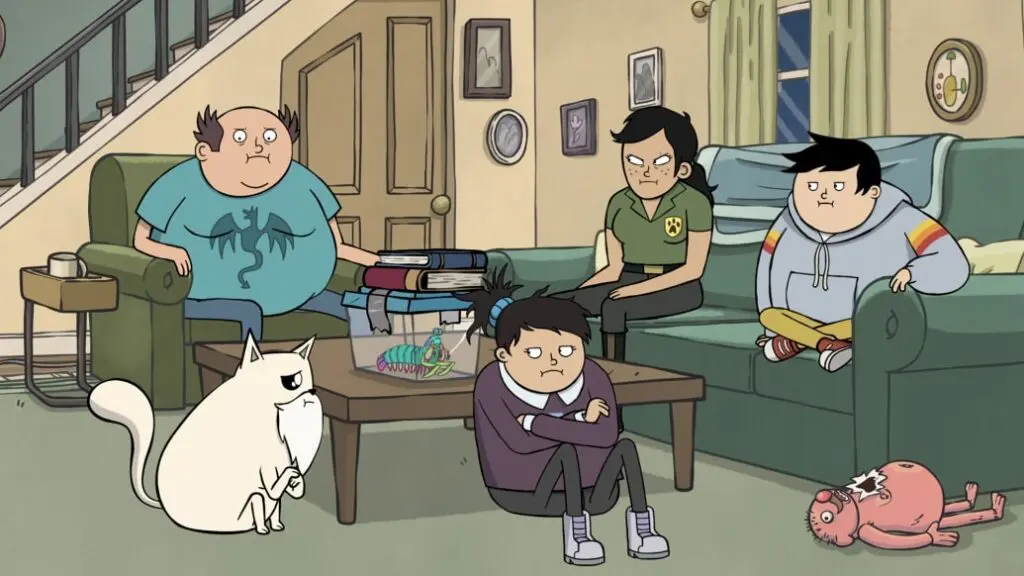Exploding Kittens: Fine Show, Bad Adaptation


Exploding Kittens is a name any player of party games has at least heard in passing. The breakout Kickstarter hit has become a full franchise with expansions, spinoff games and ports, and now an entire TV series since its launch in 2015. The series feels a bit like it came out of nowhere, since I’d hardly heard anything much about it before the entire season release this past July. The first looks posted to Twitter seemed not to garner much attention—though, to be fair, that’s not exactly the series’ or Netflix’s fault so much as it might be its notorious owner’s for driving everyone away.
A lot of Netflix’s animated sitcoms tend to blend together for me. Paradise PD, Farzar, and Hoops (to name a few) all have these shared stylistic traits so prevalent in attempted new animated sitcom programming that they seem a bit creatively limited and fail to stand out from themselves. Netflix’s new sitcom, Exploding Kittens, escapes this stylistic box with its best attempt at blending rigged animation and the original artist Matthew Inman’s style for the game. While it’s not the most thrilling to look at, it’s easy to understand that as being the point of the series’ stylistic choices. This is where the show gets a bit divisive in its choices, because it feels less like an adaptation of the Exploding Kittens game and more like an animated successor INSPIRED by the game.
When God and the Devil are booted from their respective afterlives in order to live among humans for a bit to learn how to work managing them into their actual jobs, they’re sent to the planet in the form of small felines, Godcat and Devilcat respectively. These two now have ACTUAL cards with the help of a tie-in spin-off game, Good vs. Evil. The only pre-existing Exploding Kittens character who takes on a recurring role in the show is Marv’s boss, who oddly enough appears on one of the Alter the Future cards.
The household Godcat and Devilcat meddle with, the Higgins household, is home to an interesting family of four. Marv, an avid tabletop gamer whose day job is at a big bulk store, Abbie, a former Navy SEAL, Greta, a scientific sister who can often be the voice of reason, and Travis, a passionate content creator trying to retroactively undo his online reputation of being in an embarrassing viral video. These four are quirky on paper and have loads of character building potential, but their writing at times can be a bit sloppy and feeds into a lot of problems there are with modern animated sitcoms. A lot of the jokes come down to on-the-nose dark humor. No matter how dark the humor might get in the show, it is an adult animated series after all, the problem comes down to how shoehorned in these quips feel at times. After not even the full nine episodes of the season, that type of writing can get pretty formulaic, and in the essence of party games, the last thing you’d want is for every joke to be as predictable and played-out as it can get.

However, it doesn’t feel like these are just tortured souls that are vessels for Godcat and Devilcat and the world around them to toss around like toys. There are occasionally actual stakes with interest and plot backing to drive them. Travis’ constant talk about the internet and online content creation often feels dated and like there’s no commentary behind it (which, honestly, is hard for almost every animated sitcom to do right), but when he and Marv travel back in time to try and stop his viral video from being made, you can feel some of the regret and embarrassment he feels that isn’t just exclusive to the online experience. When he finally discovers the identity of his most relentless online troll, it doesn’t exactly feel the most crushing, but it most certainly doesn’t feel empty. The writers are trying to do something more with these characters than it would seem, which is a great direction for this series to take that isn’t just “another animated sitcom”, which works to their benefit.
Again, there isn’t a ton that’s Exploding Kittens-y about the Exploding Kittens TV show, but it’s not like they’re not trying with anything but the series name alone. Some of the cats’ expressions mirror that which appears on the cards, with more cards’ elements (such as Marv’s boss) being incorporated as well. In addition, the original artist of the game is heavily involved in the show’s production, so it doesn’t feel like an attempt to revive an IP that makes people go, “Oh, that game? It got a TV show? NOW?” You could actually make the argument that this show represents the output of the titular company BEHIND Exploding Kittens, as Marv plays a game in one episode that seems strikingly similar to another of their releases. The series is by no means a love letter to the game, but it is doing its best with what it has and comes out just fine. Which, given the factors at hand here, is an achievement worth stating. Exploding Kittens isn’t going to light the world on fire like it once had, but this is a series worth watching if you have fond memories of the game or if you just like cats. Don’t worry, there wasn’t a single kitten that actually exploded in this series.

Exploding Kittens is now available to stream on Netflix.